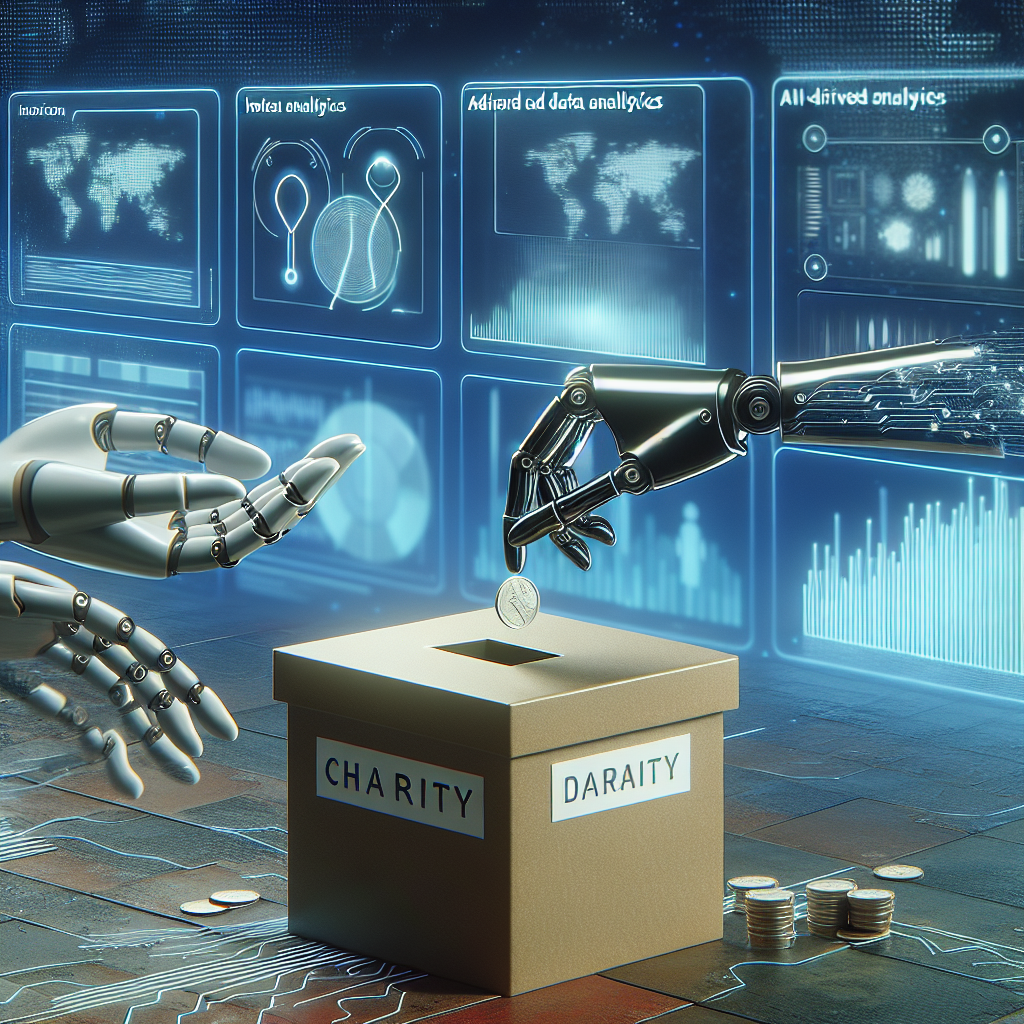The Impact of AI on Charitable Organizations: A Look at the Future
Artificial Intelligence (AI) has been making waves in various industries, revolutionizing the way things are done. One sector that stands to benefit greatly from AI is the charitable organizations. With AI technologies becoming more advanced and accessible, charitable organizations are finding new and innovative ways to use AI to improve their operations and achieve their philanthropic goals.
From streamlining administrative tasks to improving donor engagement and fundraising efforts, AI has the potential to transform the way charitable organizations operate and make an impact in the world. In this article, we will explore the impact of AI on charitable organizations, discuss some of the key ways AI is being used in the sector, and take a look at what the future holds for AI and philanthropy.
How AI is Transforming Charitable Organizations
1. Streamlining administrative tasks
One of the biggest challenges faced by charitable organizations is the overwhelming amount of administrative work that comes with managing donations, organizing events, and coordinating volunteers. AI technologies such as chatbots and automated systems can help streamline these tasks, freeing up valuable time and resources for organizations to focus on their core missions.
Chatbots, for example, can be used to answer common donor inquiries, process donations, and provide information about upcoming events. Automated systems can help organizations track and manage donor relationships, send personalized communications, and analyze data to identify trends and opportunities for growth.
2. Improving donor engagement
Donors are the lifeblood of charitable organizations, and engaging with them effectively is crucial for success. AI can help organizations better understand their donors, personalize communications, and tailor fundraising campaigns to meet their needs and interests.
By analyzing donor data and behavior, AI can help organizations identify key trends and preferences, enabling them to create targeted fundraising appeals and events that resonate with donors. AI can also help organizations reach donors through multiple channels, such as social media, email, and text messaging, increasing their reach and engagement.
3. Enhancing fundraising efforts
Fundraising is a critical component of charitable organizations, and AI can play a key role in helping organizations raise more funds and reach their goals. AI-powered tools can help organizations identify potential donors, analyze donor data to predict future giving patterns, and optimize fundraising campaigns for maximum impact.
AI can also help organizations identify new fundraising opportunities, such as matching gift programs, crowdfunding campaigns, and corporate partnerships. By leveraging AI technologies, organizations can increase their fundraising efficiency, raise more funds, and make a greater impact in their communities.
The Future of AI and Philanthropy
As AI technologies continue to evolve and become more advanced, the future looks bright for charitable organizations. AI has the potential to revolutionize the way organizations operate, engage with donors, and raise funds, enabling them to achieve their philanthropic goals more effectively and efficiently.
In the coming years, we can expect to see even more innovative uses of AI in the charitable sector. From predictive analytics to virtual assistants, AI technologies will continue to transform the way organizations operate and make a difference in the world.
FAQs
Q: How can charitable organizations get started with AI?
A: Charitable organizations can start by exploring AI technologies that align with their goals and needs. They can leverage AI-powered tools such as chatbots, automated systems, and predictive analytics to streamline their operations, engage with donors, and raise funds more effectively.
Q: Is AI expensive for charitable organizations to implement?
A: While AI technologies can be costly to implement, there are many affordable options available for charitable organizations, such as cloud-based solutions and open-source platforms. Organizations can also explore partnerships with AI vendors and nonprofits to access cutting-edge AI technologies at a lower cost.
Q: What are some challenges charitable organizations may face when implementing AI?
A: Some challenges organizations may face include data privacy and security concerns, the need for staff training and education, and the potential for bias in AI algorithms. It is important for organizations to carefully consider these challenges and develop a comprehensive AI strategy to address them effectively.
In conclusion, AI has the potential to revolutionize the way charitable organizations operate and make a difference in the world. By leveraging AI technologies to streamline administrative tasks, improve donor engagement, and enhance fundraising efforts, organizations can increase their impact and achieve their philanthropic goals more effectively. As AI continues to evolve and become more advanced, we can expect to see even more innovative uses of AI in the charitable sector, enabling organizations to make an even greater impact in their communities and beyond.

